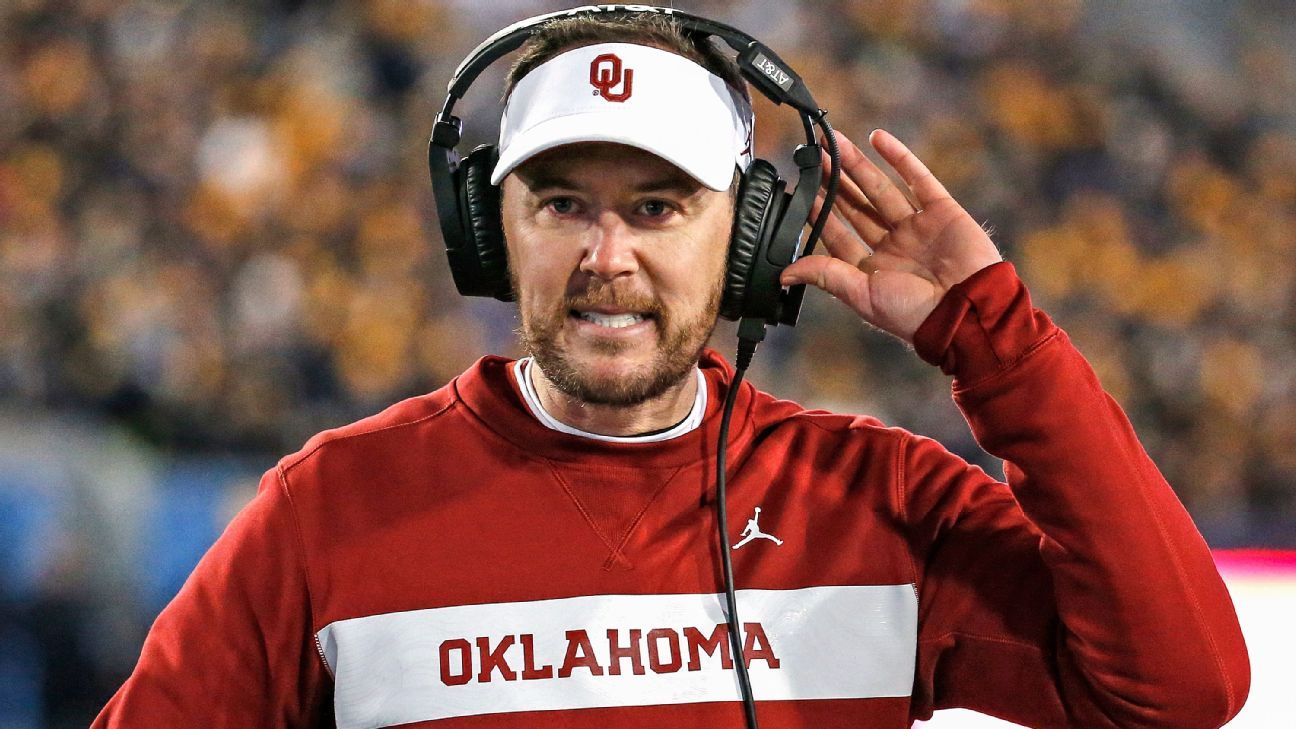As college football players across the country slowly start to return to campuses for NCAA-approved voluntary workouts, Oklahoma coach Lincoln Riley told reporters on Wednesday he’s “sure the temptation will be high” for some coaches to push the boundaries of what’s allowed.
Many spring practices were either cut short or didn’t happen at all this year because of the ongoing coronavirus pandemic, which raised a question during Riley’s Zoom press conference about the possibility of coaches trying to compensate for some lost time during this initial phase of return.
“Sadly in our college game, voluntary has always been a very loose term,” Riley said. “The reality of the matter is there’s different institutions, and there’s different conferences that allow you to do a different amount, or some just look the other way. It’s unfortunate that that’s what it’s come to right now, but we have other parts of our year where that’s always been an issue, and it’s well-known across coaches, players across the country, that’s a rule that’s applied very differently different places and in different parts of the country.”
When the NCAA announced last month that football and basketball could begin on-campus voluntary activities June 1, it stated the workouts “must be initiated by the student-athlete,” and said coaches aren’t allowed to be present, “unless a sport-specific safety exception allows it, and activity cannot be directed by a coach or reported back to a coach.”
Riley said other coaches going beyond the voluntary rules is “something we live with.”
“I’m sure the temptation will be high, just like the temptation to get players back on campus right away was high,” he said. “I think it all just comes down to your priorities and what you believe is best.”
While the Big 12 conference announced its schools could return to voluntary workouts as soon as June 15 — the same as the Pac-12 — Oklahoma was prepared to stick with its July 1 date. The SEC allowed its athletes to begin voluntary workouts as soon as June 8, while the ACC and Big Ten have left the decisions to the individual schools.
“The thing I’m proud of is we didn’t wait for somebody else to do it,” Riley said. “We didn’t wait for somebody to tell us what we could do. We just did simply what we thought was best. … When our competitors said they’re bringing them back early, we didn’t flinch.”
